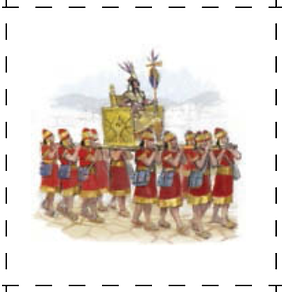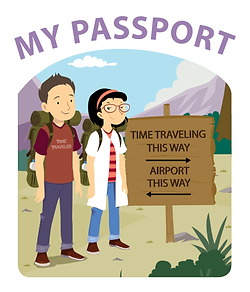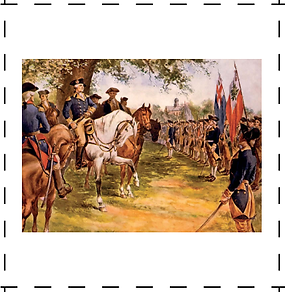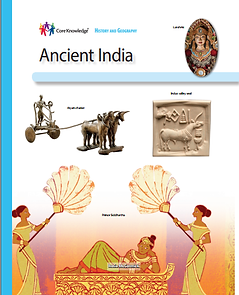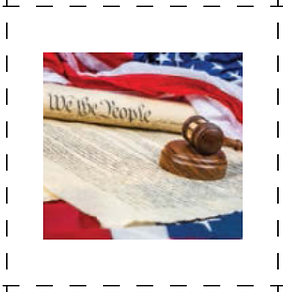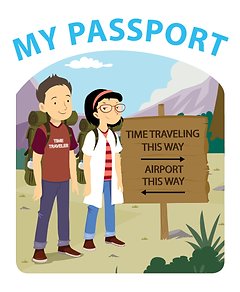Grade 1
Unit 1: Continents, Countries and Maps
Focus: How do we find our way around the world? In this Grade 1 CKHG unit, Continents, Countries, and Maps, students use their newfound map skills to discover our world, and their place in it. The unit begins by exploring maps—looking at different types of maps and how to read them. Students then travel across the seven continents and the four oceans. The seven chapters of Continents, Countries, and Maps are filled with examples of how different the people, wildlife, and landscapes are across our wonderful world. The last pages are full of fun facts about Earth, its continents, and oceans.
Additional Search Terms: Social studies • geography • nonfiction • informational text • map key • symbols • compass rose • equator • hemisphere • Puerto Rico • Virgin Islands• Caribbean • Washington, D.C. • New England • Midwest • Great Plains • Pacific Ocean • Ottawa • Inuit • Puerto Rico • Kayapo • Ojos del Salado • Russia • Vatican City • Ireland • Austria • Volga River • Lake Ladoga • Roman Colosseum • Algeria • Seychelles • Luxor • Nile River • Cape Town • Mount Kilimanjaro • The Maldives • Caspian Sea • China • Japan • Udaipur • Canberra • Aboriginal people
Unit 2: Mesopotamia
Focus:
In this unit students will be introduced to Mesopotamia, an ancient civilization that developed in the land between the Tigris and Euphrates Rivers.
Students will learn that Mesopotamians began to rely less on hunting animals and gathering plants. Instead, they developed agricultural methods that enabled them to feed the population. Over time, some people were able to stop working on the land and instead were employed in other ways in the growing towns and cities.
Additional Search Terms: social studies • geography • civics • map skills • nonfiction • informational text • ancient • civilization • farming • cities • flood/flooded • floodwater • cuneiform • writing • archaeologists • reeds • laws • temples • gods • goddesses • ruins • half-god • Hammurabi • Code of Hammurabi • rivers • king • queen • Tigris River • Euphrates River • headdress • temples • Temple of Ur • Babylon • Ishtar • Gilgamesh
Unit 3: Ancient Egypt
Focus: This unit continues the exploration of ancient civilizations begun in the Grade 1 CKHG unit about ancient Mesopotamia. Students will study the geography of Egypt, specifically the Nile River, as well as the culture and beliefs associated with the ancient Egyptians.
In Ancient Egypt’s seven chapters, students will come to understand that the ancient Egyptians built a complex and stable civilization that lasted for more than three thousand years.
Additional Search Terms: social studies • geography • civics • map skills • nonfiction • informational text • Africa • ancient Egypt • archaeologists • canopic jars• Carter, Howard • chariot • civilization • Egypt • flood/flooded • gift of the Nile • gods/goddesses • Hatshepsut • hieroglyphs/hieroglyphics • King Tut • laws • mummy • Nile River • ox/oxen • papyrus • pharaoh • plow • pyramid • Rosetta Stone • Sahara Desert • scribe • scrolls • Sphinx • tomb • Tutankhamen
Unit 4: Three World Religions
Focus: The Grade 1 Core Knowledge History and Geography unit, Three World Religions, explores the history of Judaism, Christianity, and Islam, three major religions that developed in the same part of the world and share a belief in one god. Throughout the unit’s five chapters, students will discover many of the religious holidays, symbols, and celebrations of the three faiths.
Additional Search Terms: social studies • geography • civics • religion • nonfiction • informational text • ancient civilization • Egypt • Judaism • Moses • Exodus • Ten Commandments • Torah • Star of David • Israel • Christianity • Jesus • messiah • Passover • Last Supper • cross • Islam • Muhammad • Mecca • Koran • star and crescent • Ramadan
Unit 5: Early Civilizations of America
Focus: In this Grade 1 Core Knowledge History and Geography unit Early Civilizations of the Americas, students explore several different, powerful civilizations that people created in North and South America long ago. Beginning with the arrival of the first humans into the Western Hemisphere many thousands of years ago, the unit looks at the evolution of civilization in the Americas, from hunters and gatherers to complex cities and cultures of the Maya, Aztec, and Inca. The unit’s five chapters expose students to the religions, agriculture, and folklore of these rich and amazing cultures.
Additional Search Terms: social studies • geography • religion • nonfiction • informational text • ancient civilization • hunter gatherers • farming • Maya • astronomy • Aztec • Tenochtitlán • Inca • Royal Road • quipu • Machu Pichu • Andes Mountains • Nahuatl • Quechua
Unit 6: The Culture of Mexico
Focus: In this Grade 1 Core Knowledge History and Geography unit students explore Mexico, a country with a rich and varied heritage combining Native American, Spanish, and other influences to create the vibrant culture that it enjoys today.
The unit’s five chapters introduce students to the diverse physical geography and history of Mexico. They will see modern cities built on the ruins of ancient civilizations and travel from beautiful beaches to towering volcanoes. They will learn about celebrations such as the Day of the Dead, discover mariachi music, and listen to a Mexican folktale.
Additional Search Terms: social studies • geography • map skills • informational text • Mexico • Tenochtitlán • Aztec • Yucatán Peninsula • Mount Popocatépetl • Day of the Dead • Cinco de Mayo • piñata • mariachi • Coyote • folktale
Unit 7: Early Explorers and Settlers
Focus: Why did Europeans first come to the Americas? The Grade 1 Core Knowledge History and Geography (CKHG) unit Early Explorers and Settlers looks at major reasons for the exploration of the “New World,” ranging from perceived easy access to wealth to a longing for religious freedom. In its seven chapters, Early Explorers and Settlers looks at Columbus’s accidental arrival on the islands of the Caribbean, at the Lost Colony of Roanoke Island and its mysterious disappearance, and at the success of the Massachusetts Bay Colony in New England. The unit does not shy away from the difficult subject of slavery but gently introduces the subject in an age-appropriate manner.
Additional Search Terms: social studies • geography • nonfiction • informational text • conquistadors • Hernan Cortes • Francisco Pizarro • Sir Walter Raleigh • Virginia Dare • John Smith • Powhatan • Pocahontas • enslaved people • tobacco • Pilgrims • the Mayflower • Wampanoag • Squanto • Massachusetts Bay • Puritans
Unit 8: From Colonies to Independence
Focus: The Grade 1 Core Knowledge History and Geography (CKHG) unit From Colonies to Independence follows the evolution of the thirteen North American colonies, from their dependence on Great Britain to their victory in becoming an independent nation. In the nine chapters of From Colonies to Independence, students learn about the early years of our fledgling nation. They observe our battles with Britain, but more importantly, they witness the birth of a new political identity, achieved through the combined efforts of Thomas Jefferson, John Adams, and others. Students also learn about the establishment of Washington D.C. as our capital city, and about such key American symbols as the Stars and Stripes and the Liberty Bell.
Additional Search Terms: social studies • geography • nonfiction • informational text • King George III • taxes • enslaved Africans • Samuel Adams • Concord • Minutemen • the shot heard ‘round the world • John Adams • Fourth of July • Franklin stove • Delaware River • Trenton • Martha Washington • District of Columbia • White House• Betsy Ross • American eagle
Unit 9: Exploring the West
Focus: This Grade 1 Core Knowledge History and Geography unit focuses on the determination of some famous Americans to explore the West when our country was young. Students discover that as a boy, Daniel Boone learned about living in the forests from the Lenape Native Americans. This knowledge later helped him lead a group of men to clear the Wilderness Road, allowing settlers to travel through the Appalachian Mountains into Kentucky. They then learn about the Louisiana Purchase, Thomas Jefferson’s successful effort to buy a vast territory from French Emperor Napoleon Bonaparte. Students meet Meriwether Lewis, army leader and outdoorsman, and William Clark, an explorer who was also an artist, who Jefferson chose to journey through this vast territory all the way to the Pacific Ocean. Students travel with Lewis and Clark and the group of explorers they led, the Corps of Discovery, and discover the indispensable help the Corps had from Native Americans along the way. Finally, students take a closer look at Sacagawea, the brave and resourceful Shoshone woman without whom Lewis and Clark would not have made it to the Pacific.
Number of Lessons: 4
Additional Search Terms: Daniel Boone • Appalachian Mountains • Wilderness Road • Native Americans • Lenape • Louisiana Purchase • Mississippi River • flatboat • New Orleans • Thomas Jefferson • Napoleon Bonaparte • Meriwether Lewis • William Clark • Corps of Discovery • Missouri River • Mandan • Sacagawea • Charbonneau • Jean Baptiste • Pacific Ocean • Shoshone • Rocky Mountains • nonfiction • informational text • Native Americans
Grade 2
Unit 1: Ancient India
Focus: This Grade 2 Core Knowledge History and Geography unit introduces students to the early Asian civilization of ancient India. Students will explore the geography of India, the Ganges and Indus Rivers, and the development of the first civilization in the Indus valley, where modern-day western India, Pakistan, and northeastern Afghanistan are located. The importance of settling near a river in order to farm is also reinforced. In the unit’s six chapters, students will study the culture and beliefs associated with ancient India.
Number of Lessons: 6
Additional Search Terms: social studies • geography • civics • map skills • nonfiction • informational text • river valley • Ganges River • Indus River • holy books • Vedas • Hinduism • Buddhism • Buddha • Diwali • festival of lights • religion • gods • goddesses • Brahma • Vishnu • Shiva • empire • King Asoka • Ashoka • Aryans • invaders • symbols • artifacts • chariots • castes • temples • wisdom • enlightened • suffering • conquered • Jatakas • monk • Prince Siddhartha • Lakshmi
Unit 2: Ancient China
Focus: This Grade 2 unit introduces students to the civilization of ancient China, first emphasizing China’s development along two major rivers—the Huang He and Yangtze River. They will discover that these two rivers provided rich farmland and transportation routes, and that the ancient Chinese connected them by building the longest human-made waterway, the Grand Canal, used to transport food to the cities of ancient China.
Number of Lessons: 6
Additional Search Terms: social studies • geography • civics • map skills • nonfiction • informational text • Huang He • Yangtze River • civilization • archaeologists • nomads • Great Wall • Grand Canal • Confucius • woodblock printing • paper*porcelain • gunpowder • fireworks • Chinese New Year • ancestors • silk • caterpillars • cocoons • parade • Emperor Shihuangdi Qin
Unit 3: The Culture of Japan
Focus: The Grade 2 Core Knowledge History and Geography unit Culture of Japan explores the physical geography and society of Japan, as well as the rich cultural traditions that still resonate within this modern, industrialized nation. In just three chapters, students will learn about origami, haiku, agricultural and religious festivals; the physical geography that informs much of Japan’s way of life; and the busy modern culture that is Japan today.
Additional Search Terms: social studies • geography • religion • nonfiction • informational text • volcano • Mount Fuji • snow monkey • cranes • fishing • paddy fields • Tokyo • yen • robots • emperor • earthquakes • kimono • origami • shichi-go-san • haiku • woodblocks
Unit 4: Ancient Greece
Focus: No ancient civilization has had more influence on the Western world than that of ancient Greece. In the Grade 2 Core Knowledge History and Geography unit Ancient Greece, students explore the ideas, patterns of government, and art forms that have formed the basis of much of our own culture. Through the eight chapters of Ancient Greece, students discover many of the political and philosophical building blocks that inform our own society today.
Additional Search Terms: social studies • geography • religion • nonfiction • informational text • democracy • citizen • Athens • Assembly • Sparta • Council of Elders • phalanx • Persian Wars • Marathon • Thermopylae • Zeus • Hera • Hades • Athena • Apollo • Aphrodite • Darius III • Gordian knot • Socrates • Plato • Aristotle • scientific method • Alexander the Great • philosopher/philosophy • Parthenon • Mount Olympus
Unit 5: Geography of the Americas
Focus: In the Grade 2 Core Knowledge History and Geography unit Geography of the Americas, students become explorers of the diverse landscapes of North and South America and discover the many ways people have found to survive and thrive in them.
Additional Search Terms: social studies • geography • nonfiction • informational text • compass rose • map key • Great Plains • Appalachian Mountains • Great Lakes • Nunavut • Rocky Mountains • prairies • Yukon Territory• Northwest Territories • Ottawa • Quebec • Moctezuma II • Mexico City • Guatemala • Aztec • Maya • Caribbean • Brazil • Aconcagua • Amazon River • quinine • cacao • indigenous people • the Pampas • wind turbines • volcanoes • cloud forests • the West Indies • Puerto Rico • U.S. Virgin Islands • Aconcagua • Simón Bolívar
Unit 6: Making the Constitution
Focus: Students who listen to this Grade 2 Core Knowledge History and Geography unit discover that Americans had a difficult task at hand after winning the Revolutionary War: they had to figure out a better way to govern themselves. Such leaders as James Madison, George Washington, Alexander Hamilton, and Benjamin Franklin traveled to Philadelphia to meet at the Constitutional Convention, with the goal of creating a new government.
Number of Lessons: 6
Additional Search Terms: Constitution • Bill of Rights • amendments • We the People • democracy • informational text • nonfiction • National Archives • Federalist Papers • Father of the Constitution • James Madison • Constitutional Convention • Independence Hall • Alexander Hamilton • John Jay • Benjamin Franklin • George Washington • Revolutionary War • American Revolution • Philadelphia
Unit 7: The War of 1812
Focus: What happened when the British navy discovered that it was short of sailors in its war with France? Britain’s navy proceeded to board American trade ships to capture runaways, kidnapping some American sailors into the bargain. In this Grade 2 Core Knowledge History and Geography unit, students discover that this impressment of sailors made the Americans very angry. They learn that the British also decided to help Native Americans defend their land from settlement by the Americans, which led to the Battle of Tippecanoe in Indiana and eventually to a war between America and Great Britain in 1812.
Number of Lessons: 5
Additional Search Terms: War of 1812 • informational text • nonfiction • James Madison • Dolley Madison • White House • burning of Washington • impressment • Tecumseh • Canada • Battle of Tippecanoe • War Hawks • U.S.S. Constitution • Old Ironsides • Gilbert Stuart • Francis Scott Key • Star-Spangled Banner • national anthem • Fort McHenry• Major George Armistead • Mary Young Pickersgill • American flag • Battle of New Orleans • Andrew Jackson • Paul Jennings • enslaved people • slavery • Native Americans
Unit 8: Americans Move West
Focus: As towns and cities along the East Coast grew, Americans began to look west. In this Grade 2 Core Knowledge History and Geography unit, students will see the new developments in transportation that helped make this happen. Canals, steamboats, wagon trains and, ultimately, the Transcontinental Railroad all took settlers west where they found new ways of living. The Gold Rush took them to California to mine for gold, and promises of new land to farm and wide open spaces, as well as jobs along the railroad, helped keep the settlers moving west.
Number of Lessons: 9
Additional Search Terms: informational text • nonfiction • Wilderness Road • Daniel Boone • Appalachian Mountains • Wilderness Road • flatboats • keelboat • steamboat • Robert Fulton • Clermont • Erie Canal • DeWitt Clinton • Oregon Trail • Great Plains • Rocky Mountains • Jedediah Smith • South Pass • wagon train • Gold Rush • forty-niners • Levi Strauss • Pony Express • telegraph • Transcontinental Railroad • Promontory Point • cowboys • Native Americans • Andrew Jackson • Trail of Tears • Cherokee • American bison • Sioux • Sequoyah
Unit 9: The Civil War
Focus: In this Core Knowledge Grade 2 Unit students explore the difficult subject of the Civil War in an age appropriate way, but without wavering from the difficult truths. Students see the beginnings of slavery in America, and the moral struggles and compromises surrounding it. Students are introduced to the generals Robert E. Lee and Ulysses S. Grant, and are shown some of the strategies behind the major campaigns. Finally, they see the surrender of the Confederacy, and walk with Lee to meet Grant at Appomattox.
Number of Lessons: 7
Additional Search Terms: informational text • nonfiction • slavery • plantations • abolitionists • Sarah and Angelina Grimké • Uncle Tom’s Cabin • Confederate States of America • Jefferson Davis • Fort Sumter • blue • Yankees • Union • grey • rebels • Confederacy • George McClellan • Battle of Antietam • Manassas • Emancipation Proclamation • West Point • Battle of Gettysburg • Battle of the Wilderness • William Tecumseh Sherman • American Red Cross
Unit 10: Immigration and Citizenship
Focus: The Grade 2 Core Knowledge History and Geography unit Immigration and Citizenship looks at the influx of people coming to America from the 1800s to the present day—at who they were and why they came, and what happened to them once they got here. Students look at the reasons people left their home countries—such as the potato famine in Ireland, or the persecution of Jewish people in Russia—to their lives in American cities or on farms.
Number of Lessons: 5
Additional Search Terms: informational text • nonfiction • Irish potato famine • Statue of Liberty • Emma Lazarus • Ellis Island • tenements • Great Plains • Andrew Carnegie • citizenship • oath of allegiance • E pluribus unum
Unit 11: Civil Rights Leaders
Focus: The Grade 2 Core Knowledge History and Geography unit Civil Rights Leaders celebrates the lives of people who faced injustice with bravery, and were able to make extraordinary changes for good.
Number of Lessons: 8
Additional Search Terms: informational text • nonfiction • slavery • segregation • Franklin Delano Roosevelt • The Great Depression • Native Americans • United Nations • discrimination • Branch Rickey • Mohandas Gandhi • civil rights movement • boycott • hunger strike • Ponca Nation


















